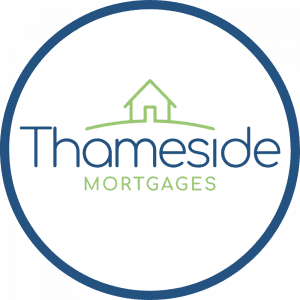Mortgages Guide
A mortgage is a type of loan that is used to purchase a property or land. The loan is typically secured against the property, which means that if you fail to make your mortgage payments, the lender has the right to repossess the property and sell it to recover their money.
Mortgages are usually long-term loans, typically lasting for 25 years or more, and the borrower makes regular monthly repayments to the lender to pay off the loan over time. The amount of money that can be borrowed through a mortgage is determined by a range of factors, such as the borrower’s income, credit history, and the value of the property being purchased.
There are different types of mortgages available, including fixed-rate mortgages, variable-rate mortgages, tracker mortgages, and offset mortgages.
Each type of mortgage has its own features and benefits, and it’s important to carefully consider your options before choosing a mortgage product that is right for you.

What is a mortgage broker?
A mortgage is a professional who specialises in finding and arranging mortgage loans for individuals and businesses. They act as intermediaries between borrowers and lenders, helping borrowers to find suitable mortgage deals that match their financial circumstances and requirements.
Mortgage brokers typically have access to a range of mortgage products from different lenders, and they can provide expert advice and assistance throughout the mortgage application process, from initial consultation to completion.
Why should I use a mortgage broker?
There are several reasons why a client may want to use a mortgage broker like Thameside Mortgages:
- Access to a wide range of lenders: Thameside Mortgages has access to more than 90 lenders, including some that are not available on the high street. This means they can help clients find a mortgage product that is tailored to their specific needs and financial situation.
- Expert Advice: The brokers at Thameside Mortgages have nearly 20 years of experience in the mortgage industry, which means they have a deep understanding of the market and can provide clients with expert advice and guidance.
- Utilising technology to make the process easier: Thameside Mortgages uses technology to make the mundane aspects of getting a mortgage easy for clients. For example, they use an online portal to manage the application process and provide clients with real-time updates on the progress of their application.
- Small, but friendly: Thameside Mortgages is a small, family-run company, which means they can provide clients with a personal and friendly service. Clients can expect to deal with the same broker throughout the entire mortgage application process, which can help build trust and make the process more comfortable.
- Time-saving: Using a mortgage broker like Thameside Mortgages can save clients time and effort, as the broker will handle the mortgage application process on their behalf. This can include completing paperwork, liaising with lenders, and providing guidance and advice along the way.
Overall, using a mortgage broker can provide clients with a range of benefits, including access to a wide range of lenders, expert advice and guidance, time-saving, and a personal and friendly service.
What are the main mortgage product types?
The main types of mortgages are:
- Fixed-rate mortgage: A fixed-rate mortgage offers a set interest rate for a fixed period, typically 2, 3, or 5 years. This means that your monthly mortgage payments will remain the same during the fixed-rate period, which can help you budget more effectively.
- Tracker mortgage: A tracker mortgage follows the Bank of England base rate, plus a fixed percentage. This means that your mortgage payments will change in line with any changes to the base rate.
- Variable-rate mortgage: A variable-rate mortgage has an interest rate that can go up or down at any time, depending on market conditions. This means that your monthly mortgage payments can fluctuate over time.
- Offset mortgage: An offset mortgage allows you to use any savings you have to reduce the amount of interest you pay on your mortgage. Instead of earning interest on your savings, your savings are offset against your mortgage debt, reducing the amount of interest charged.
What Interest Rate can I get?
Several factors can determine the interest rate you’ll be offered when you apply for a mortgage. Here are some of the most important ones:
- Credit score: Your credit score is a measure of your creditworthiness, and lenders use it to assess the level of risk you pose as a borrower. Generally, the higher your credit score, the lower the interest rate you’ll be offered.
- Loan-to-value ratio (LTV): This is the amount of the loan you’re applying for compared to the value of the property you’re buying. Lenders typically offer lower interest rates to borrowers who are borrowing a smaller percentage of the property’s value, as this represents a lower risk to the lender.
- Loan term: The length of your mortgage term can also affect your interest rate. Generally, shorter mortgage terms will have lower interest rates than longer ones.
- Type of mortgage: Different types of mortgages come with different interest rates. For example, fixed-rate mortgages generally have higher interest rates than variable-rate mortgages.
- Economic conditions: Interest rates are also influenced by wider economic conditions, such as inflation, the Bank of England’s base rate, and market competition among lenders.
It’s important to note that different lenders may have different criteria for determining interest rates, so it’s always a good idea to utilise the expertise of a good mortgage broker before making a decision.
What are the costs of obtaining a mortgage?
When obtaining a mortgage, there are several fees and costs associated with the process. Here are some of the most common fees you may encounter:
- Application fee: Some lenders may charge a fee when you apply for a mortgage. This fee may cover the lender’s administrative costs, such as checking your credit report or verifying your employment.
- Valuation fee: Lenders typically require a valuation of the property you’re buying to ensure it’s worth the amount you’re borrowing. You may be charged a valuation fee to cover the cost of the valuation.
- Mortgage arrangement fee: Some lenders charge a mortgage arrangement fee, which covers the cost of setting up your mortgage.
- Legal fees: You may need to hire a solicitor/conveyancer to handle the legal aspects of your mortgage. They’ll charge a fee for their services, which may include things like conducting local searches, checking contracts, and registering the property with the Land Registry.
- Survey fees: You may choose to have a more detailed survey of the property conducted to identify any potential issues, such as structural defects or problems with the roof or plumbing. There may be a fee for this service.
- Stamp Duty Land Tax (SDLT): In the UK, you’ll need to pay SDLT when you purchase a property above a certain value. The amount of SDLT you’ll pay depends on the purchase price of the property.
It’s important to factor these fees and costs into your budget when considering how much you can afford to borrow. Your lender or mortgage broker should provide you with a breakdown of the fees associated with your mortgage, so be sure to ask for this information upfront.
Should I use a broker who charges fees?
While many mortgage brokers have access to similar mortgage deals, the importance of having the right mortgage broker cannot be overstated. Paying for a mortgage broker can provide someone who is extremely experienced and qualified in the field of mortgages, providing invaluable advice tailored to your specific financial circumstances, ensuring that you make informed decisions and ultimately secure the right mortgage for your needs.
You should check client reviews, such as Google, Trust Pilot and Social Media platforms before choosing a broker, to ensure you’re choosing a firm that has your best interests at heart.
There are brokers who do not charge fees, but these could be large organisations that may prioritise efficiency and volume over personalised attention to clients, or smaller firms that lack experience in the industry and/or may not invest in systems and processes to enhance and simplify the client experience.
On the other hand, a good quality, experienced mortgage broker that charges a fee for their services can provide excellent value for money due to the invaluable advice they provide, access to exclusive deals. While this may be an additional expense, clients can benefit from personalised attention, expert advice, and assistance throughout the mortgage application process.
Therefore, it’s not uncommon for a good quality, experienced mortgage broker to charge a fee to their clients for their services.
At Thameside Mortgages, we would typically only charge a fee on receipt of a mortgage offer, which means you have peace of mind knowing you are not at risk of losing money upfront. It’s worth noting that there can be situations or complex cases that require slightly different terms, but we would always be clear, upfront, and transparent when it comes to the fees you would pay.
By charging fees, mortgage brokers are less likely to be influenced by the commission offered by mortgage lenders.
The Financial Conduct Authority does not regulate building surveyors.
Thameside Mortgage Ltd are not regulated by The Royal Institution of Chartered Surveyors, we do not have any involvement in the provision of this type of service / activity. We are not qualified surveyors and the information provided on this website is for informational purposes only. The information provided is not intended to be a substitute for professional advice, inspection, or survey.
It is important to seek professional advice and to undertake a proper survey/inspection before making decisions or taking actions related to a property.
What Our Clients Are Saying

